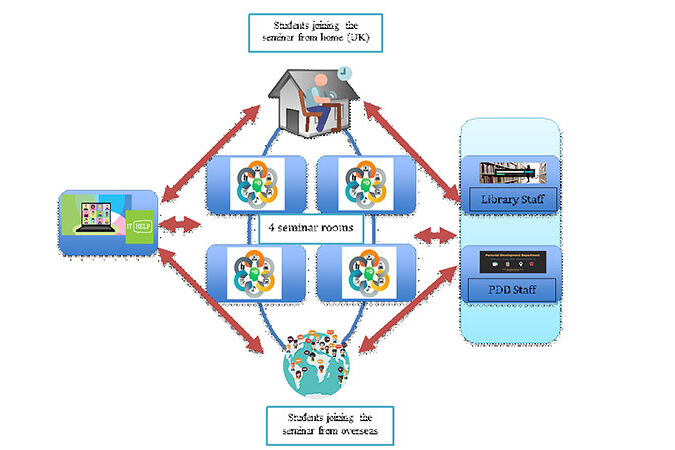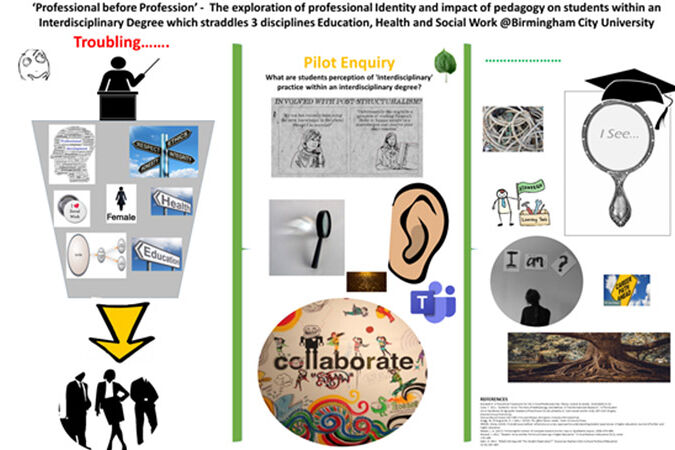When training as a Primary Teacher years ago, I was surprised with how much emphasis there was on research. I didn’t really know what to expect from ‘teacher training’, or ‘teacher education’ I was now told to call it. Getting onto a PGCE was just as difficult and competitive as I had always been told, and I was over the moon to have a place. So, I took it all in and began to value how important it was to be research informed. But it wasn’t until I started my PhD that I realised how important being research active was.
Don’t get me wrong, some of the most useful experiences for me training to be a teacher came from watching teachers and learning from other people’s experience. Some of the guidance and advice from my PGCE days are still with me now.
Much of this, especially pedagogy and behaviour management was underpinned by research. And this is where the importance of research lay during my Primary teaching years- in using research to find ‘what works’. One of the main driving forces was to improve Standardised Assessment Task results for Year 6 (age 10-11, last year of primary school).
Numbers drove everything, this is the area of my doctoral research, primary assessment and consequently what got me into Higher Education as an academic. Over the course of my PhD, I would be teaching not children but teacher training/education students and slowly my perspective on research and teaching changed. As part of this, I started to feel tensions between what it meant to be a ‘teacher’ and what it could mean. I was perplexed at the lack of qualitative data which informed Policy reform.
I grew critical of how research was used by Government and I found a new appreciation for the research, not in how it could guide me in the ‘right’ direction but in making me question what ‘right’ even was. The lens in which I viewed education shifted, it allowed me to view it so differently than I had as a practitioner. It widened my perspective, deepened my understanding of social justice, enabled me to consider things not by ‘what works’ but rather in shades of grey and so very context dependent. The subjectivity that this brought did at first muddy the waters, but from it grew a clarity I had not had before.
Most of teaching now is on the Master’s Education course and I spend much of my time supervising students through their dissertations. I truly feel privileged to be able to balance my lecturing within a Research Assistant role. This means my priority is almost always research, I have more time for it in my workload, I sit in meetings with others in similar roles. But what about academics who have a heavy teaching workload and a small research time allocation? How do they engage in research? Doing research rather than consuming research, for these staff, is a real challenge.
Last year I carried out research within the School of Education and Social Work which painted a picture of research engagement in terms of barriers and support. There were predictable but none the less valid barriers to consider, such as; work load being high and varied through the academic year and supporting students taking priority.
Most of those who participated in the research had never planned to become an academic, some felt they were waiting for someone to realise their mistake in giving them the job. Others still felt they identified more as a teacher than an academic.
This first transition to HE was clearly difficult, so adding on the additional transition to that of researcher contributed to these feelings of being an imposter, especially if ‘doing’ research has never been on their horizon. I too felt like an imposter when I started my PhD, even though I aimed to research this had not previously been on my career path, but was an opportunity I took in a different direction.
What can be done to bring the benefits of research engagement to the challenges faced by Lecturing staff? There is no simple answer to this. Views on what counts as research could be shifted, it is not just for those studying a doctorate. Or perhaps a deeper connection between those who research and those who teach.
This perceived dichotomy does not help especially when it is reinforced by a road between the two. What is clear is that things are already changing, more staff are completing their Doctorates, those who were not wanted to research, there is interest and willing on both sides. Central to all staff who participated was a care and desire to contribute to the field they taught in, by producing practitioners who could have the best influence on those they taught.
With murmurs and suggestion from Government for years now, to move teacher education out of universities, there is no better time to demonstrate the benefits of what a research active SoESW can achieve.





